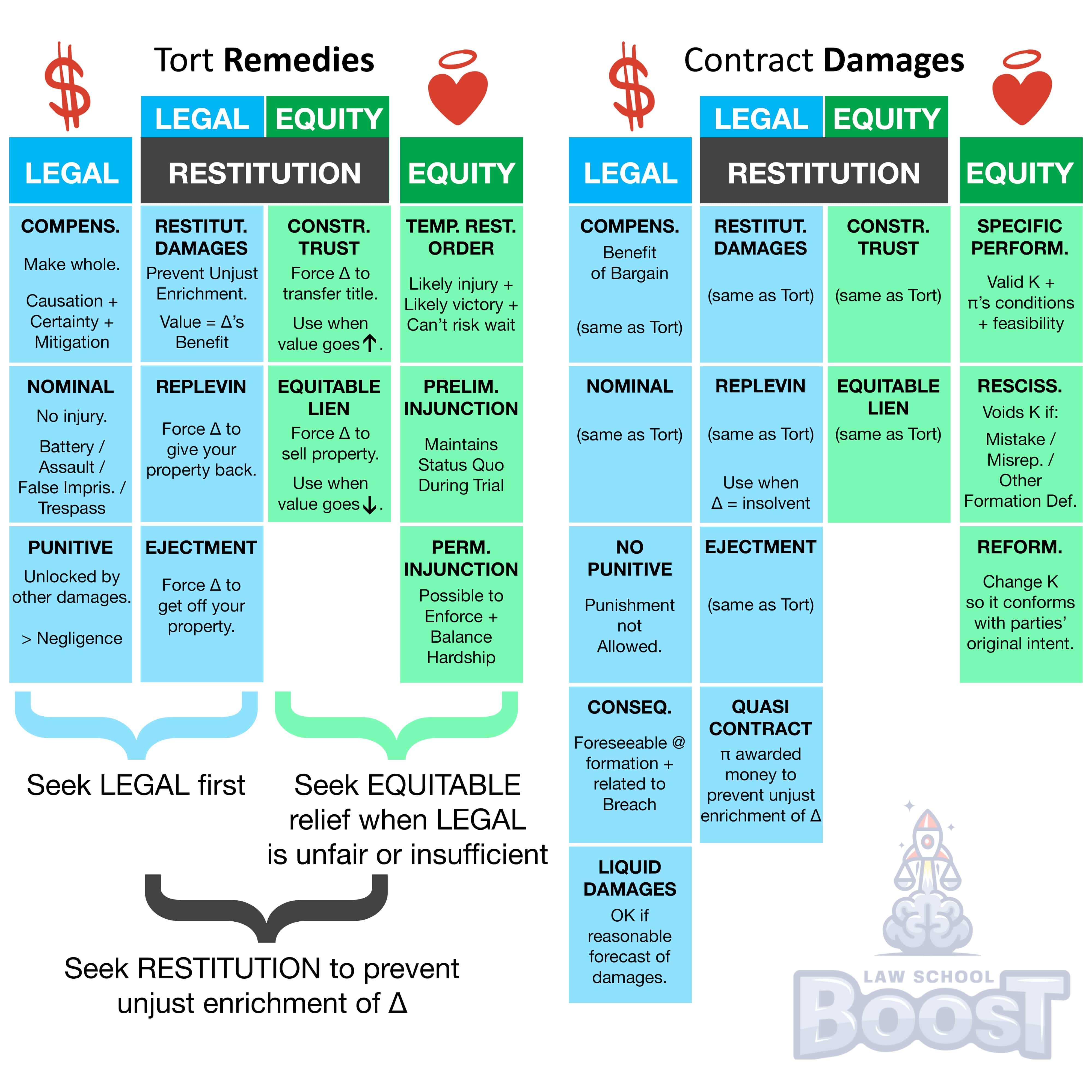🏥
Remedies • Tort - Equitable Remedies
REM#033
Legal Definition
Impossibility is a defense where it would be impossible for the defendant to carry out the terms of the injunction.
Plain English Explanation
When someone sues another person asking the court to make that person do (or not do) something, the person being sued can use the impossibility defense. This means they're saying it's impossible for them to do what the court is being asked to make them do. The purpose of this rule is to protect people from being forced to do things that they genuinely cannot do. It's applied when the person being sued proves that they can't carry out the order. This rule exists because it's unfair to punish someone for not doing something that they physically or legally can't do. It's like if your dog actually ate your homework, it'd be impossible for you to turn it in no matter how much your teacher may demand it.
Hypothetical
Hypo 1: Bob borrows a unique, one-of-a-kind painting from Sam and accidentally destroys it. Sam sues Bob and asks the court to order Bob to return the painting. Result: The court recognizes that it's impossible for Bob to return the original painting since it's destroyed. Therefore, the impossibility defense applies, and Bob can't be forced to return the original painting.
Hypo 2: Bob promises to bring Sam a star from the sky. Sam, thinking it's a metaphor for a gift, later realizes Bob meant it literally. When Bob doesn't deliver, Sam sues him, asking the court to make Bob bring a star. Result: The court finds that it's impossible for Bob to bring a star from the sky. The impossibility defense applies, and Bob can't be forced to bring a star.
Hypo 3: Bob borrows a book from Sam and doesn't return it. Sam sues Bob, asking the court to make Bob return the book. Bob claims he can't find it. Result: The court determines that just because Bob can't find it doesn't mean it's impossible to return. The impossibility defense doesn't apply here, and Bob might be forced to compensate Sam or find another way to return the book.
Hypo 2: Bob promises to bring Sam a star from the sky. Sam, thinking it's a metaphor for a gift, later realizes Bob meant it literally. When Bob doesn't deliver, Sam sues him, asking the court to make Bob bring a star. Result: The court finds that it's impossible for Bob to bring a star from the sky. The impossibility defense applies, and Bob can't be forced to bring a star.
Hypo 3: Bob borrows a book from Sam and doesn't return it. Sam sues Bob, asking the court to make Bob return the book. Bob claims he can't find it. Result: The court determines that just because Bob can't find it doesn't mean it's impossible to return. The impossibility defense doesn't apply here, and Bob might be forced to compensate Sam or find another way to return the book.
Visual Aids

Related Concepts
What are equitable remedies in tort?
What are the defenses to a suit seeking injunctive relief?
What is a preliminary injunction and how is it issued?
What is a temporary restraining order ("TRO") and what is required to get one?
What is contempt?
What is the collateral bar rule?
What parties are bound by an injunction?
When assessing a permanent injunction, how do courts balance hardships?
When assessing defenses to a lawsuit seeking injunctive relief, when are unclean hands applicable?
When assessing defenses to a lawsuit seeking injunctive relief, when is laches applicable?
When deciding on a permanent injunction, when may ejectment be inadequate?
When deciding on applying a permanent injunction, when may money damages be inadequate?
When may replevin be inadequate as a remedy and, instead, a court will opt for a permanent injunction?
When will a court issue a permanent injunction?


